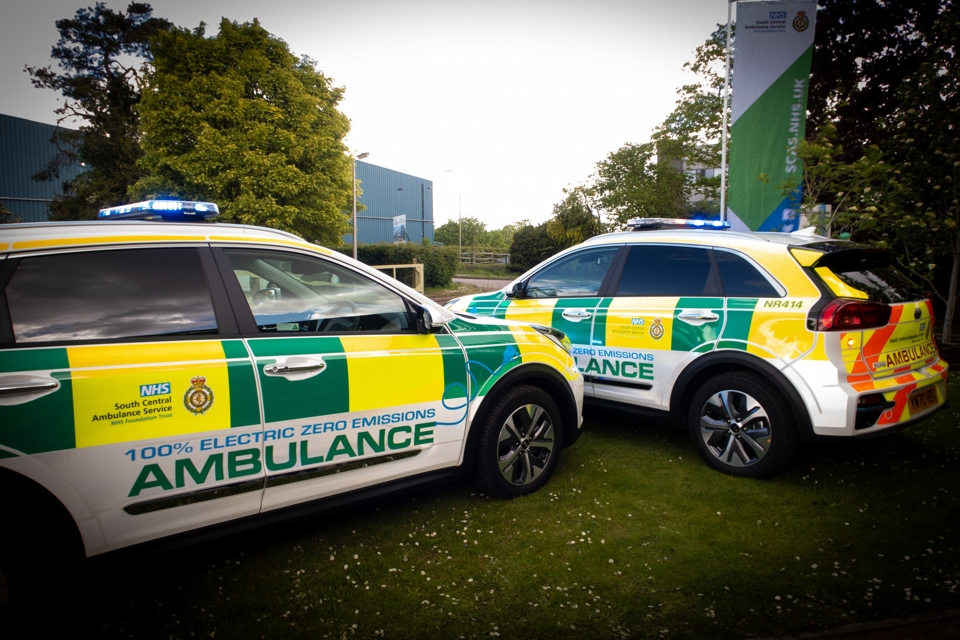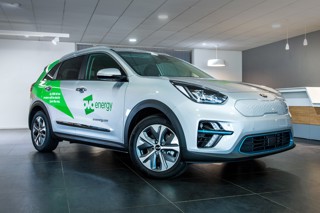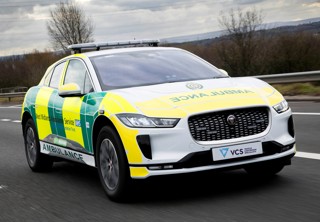South Central Ambulance Service NHS Foundation Trust (SCAS) has introduced two Kia e-Niro cars to its emergency response fleet.
The electric vehicles (EVs) have been designed and adapted by South Central Fleet Services to contain all the equipment, medication and supplies to allow first responder paramedics from SCAS to reach patients quickly under emergency driving conditions –generating zero emissions in the process.
Charles Porter, director of finance at SCAS, said: “As an organisation, we operate over 1,300 vehicles to deliver our services so being able to move to fully electric vehicles will be vital in order to deliver our environmental goals. We are key partners in national projects to deliver zero emission emergency vehicle fleets and we are already exploring how we can bring electric vehicles into our emergency ambulance and patient transport service operations.”
SCAS began its search for a suitable electric vehicle more than 18 months ago and tested a number of vehicles before settling on the e-Niro.
Nick Lambert, Head of Education – Driving at SCAS, said: “The Kia e-Niro came out on top every time as an all-round, versatile option for what we were looking for in our emergency response vehicles.”
SCAS will provide extra training for its staff before they drive the new cars so they are prepared for the extra performance and use of the regenerative braking function.
The Kia e-Niro has a driving range of up to 282 miles from its 64kWh battery – well within the estimated 90-100 miles that an emergency response vehicle will cover in an average 10-hour operational shift. Charging points are available at the Trust’s ambulance stations, as well as local hospitals, so the vehicles can be topped up if needed while on standby.
The fleet expects reduced downtime for the vehicles to be off road and a 25% reduction in overall maintenance costs compared to a petrol or diesel vehicle.
These first two electric vehicles will be based at the Trust’s Oxford City resource centre as part of an initial pilot study. Once the anticipated performance, cost and environmental benefits have been proven under normal operational conditions, it is expected that further electric response vehicles will be rolled out to all areas that South Central Ambulance Service covers.





















Login to comment
Comments
No comments have been made yet.